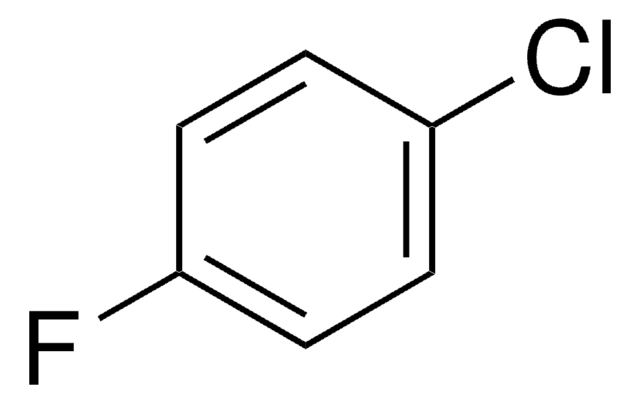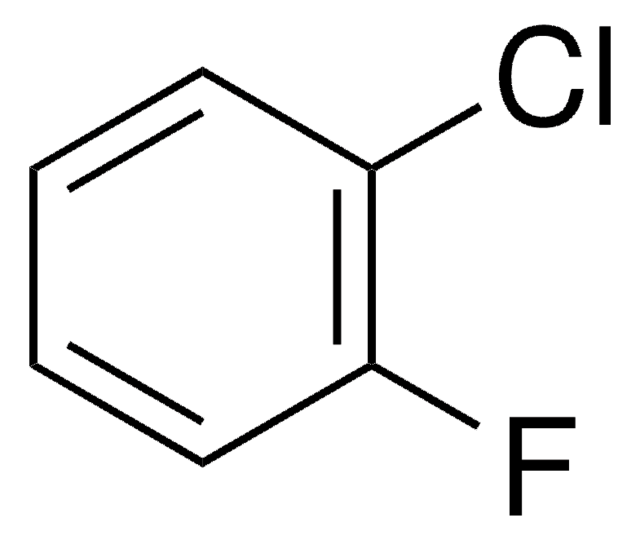All Photos(1)
About This Item
Linear Formula:
C6H5OC6H4CO2H
CAS Number:
Molecular Weight:
214.22
EC Number:
MDL number:
UNSPSC Code:
12352100
PubChem Substance ID:
NACRES:
NA.22
Recommended Products
Quality Level
Assay
97%
mp
163-165 °C (lit.)
functional group
carboxylic acid
phenoxy
SMILES string
OC(=O)c1ccc(Oc2ccccc2)cc1
InChI
1S/C13H10O3/c14-13(15)10-6-8-12(9-7-10)16-11-4-2-1-3-5-11/h1-9H,(H,14,15)
InChI key
RYAQFHLUEMJOMF-UHFFFAOYSA-N
General description
4-Phenoxybenzoic acid was converted to its corresponding amide by the soil bacterium Bacillus cereus Tim-r01.
Signal Word
Warning
Hazard Statements
Precautionary Statements
Hazard Classifications
Eye Irrit. 2 - Skin Irrit. 2 - STOT SE 3
Target Organs
Respiratory system
Storage Class Code
11 - Combustible Solids
WGK
WGK 3
Flash Point(F)
Not applicable
Flash Point(C)
Not applicable
Personal Protective Equipment
dust mask type N95 (US), Eyeshields, Gloves
Choose from one of the most recent versions:
Already Own This Product?
Find documentation for the products that you have recently purchased in the Document Library.
Mikaela Nichkova et al.
Analytical chemistry, 77(21), 6864-6873 (2005-11-01)
Currently, detection in microarray bioanalysis is based mainly on the use of organic dyes. To overcome photobleaching and spectral overlaps we applied a new type of fluorophore, crystalline europium-doped gadolinium oxide (Eu:Gd2O3) nanoparticles, as labels in immunoassay microarrays. The Eu:Gd2O3
Hassan Y Aboul-Enein et al.
Biopolymers, 73(5), 631-639 (2004-03-30)
4-(4-Phenoxybenzoyl)benzoic acid derivatives (PBADs) were found to inhibit rat and human alpha-reductase isozymes 1 and 2 in vitro. Chemiluminescence (CL), electron spin resonance, spin trapping techniques, and spectrophotometry were used to examine the effect of PBADs on reactive oxygen species
Hideki Moriyama et al.
Bioorganic & medicinal chemistry letters, 13(16), 2737-2740 (2003-07-23)
In order to investigate structure-activity relationships of azasugar series toward metalloproteinases, we synthesized and evaluated several azasugar-based compounds. As a result, it was found that 4-phenoxybenzene derivative 3 having 2R,3R,4R,5S-configurations exhibited most potent inhibitory activities against matrix metalloproteinase-1, -3 and
R Maruyama et al.
Bioscience, biotechnology, and biochemistry, 65(8), 1761-1765 (2001-10-02)
The soil bacterium Bacillus cereus Tim-r01 efficiently transformed polyaromatic carboxylic acids (PACA) such as 4-biphenylcarboxylic acid (4-BPCA), 4-biphenylacetic acid, and 4-phenoxybenzoic acid into their corresponding amides. The amidation activity was expressed at 37 degrees C (pH 7-8) in the presence
U Dehmel et al.
Archives of microbiology, 163(1), 35-41 (1995-01-01)
Pseudomonas pseudoalcaligenes strain POB310 degrades 3- and 4-carboxydiphenyl ether. The initial reaction involves an angular dioxygenation yielding an unstable hemiacetal that spontaneously decays to phenol and protocatechuate. We cloned a DNA fragment containing the gene encoding the initial dioxygenase from
Our team of scientists has experience in all areas of research including Life Science, Material Science, Chemical Synthesis, Chromatography, Analytical and many others.
Contact Technical Service









